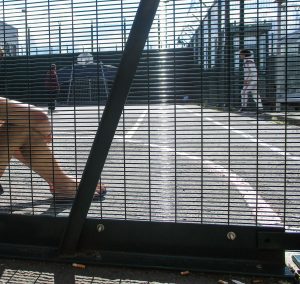impact
What do you try to change?
The Comics strip which was one of the results of the workshops helps children to better understand their rights when they are deprived of liberty. Based on the work of a group of children deprived of liberty, we developed this comics strip. Then we disseminate the comics strip to all the places where children are deprived of liberty in the French-speaking part of Belgium.
The authorities approved the produced tools and authorised their dissemination in the 6 IPPJs of the French Community from January 2019. Upon their arrival, all newcomers will be provided with the comic book and a MP3 player with the audio recording at the same time as the internal regulations.
-
evidence
Tell us what you found out - what were people's experiences, views or ideas for change?
In Belgium, upon their arrival at closed facilities, juveniles deprived of liberty are kept apart from the group for “assessment purposes”. During this period, they meet staff members who will take care of them and are informed of all their rights and duties within the facility. These rights and duties are detailed in the internal regulations, which an educator gives and explains to every newcomer. The content and the form of the internal regulations, a 14-page document, can be complicated, not user-friendly and difficult to read for some juveniles. As a consequence, they may not understand the rules or may not always perceive their scope. Respect for the rules and their ability to enforce their rights or express their points of view in this context may be compromised. -
advice

What do you suggest other people try out?
For more information on how to develop this activity, please refer to the Handbook : http://www.childrensrightsbehindbars.eu/images/EU-handbook_IS.pdf. Please look at pages 37 to 41. All the steps of the workshops are explained in this handbook. Other examples of good practices involving the genuine participation of children are listed in the handbook which was created as part of the project "Children's Rights Behind Bars" co-funded by the European Commission.


